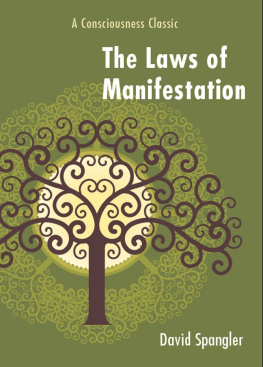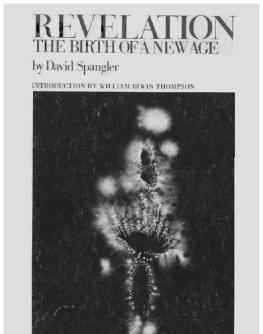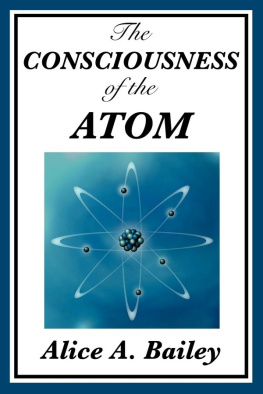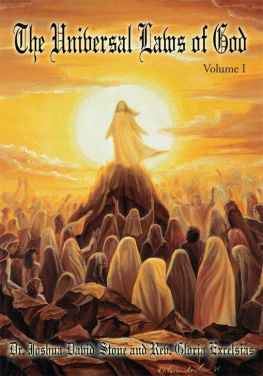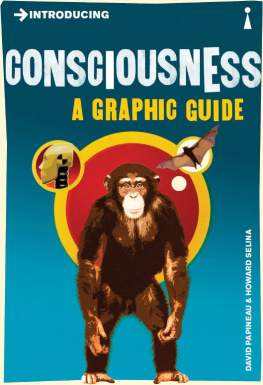David Spangler - The Laws of Manifestation: A Consciousness Classic
Here you can read online David Spangler - The Laws of Manifestation: A Consciousness Classic full text of the book (entire story) in english for free. Download pdf and epub, get meaning, cover and reviews about this ebook. year: 2009, publisher: Red Wheel Weiser, genre: Religion. Description of the work, (preface) as well as reviews are available. Best literature library LitArk.com created for fans of good reading and offers a wide selection of genres:
Romance novel
Science fiction
Adventure
Detective
Science
History
Home and family
Prose
Art
Politics
Computer
Non-fiction
Religion
Business
Children
Humor
Choose a favorite category and find really read worthwhile books. Enjoy immersion in the world of imagination, feel the emotions of the characters or learn something new for yourself, make an fascinating discovery.
- Book:The Laws of Manifestation: A Consciousness Classic
- Author:
- Publisher:Red Wheel Weiser
- Genre:
- Year:2009
- Rating:4 / 5
- Favourites:Add to favourites
- Your mark:
- 80
- 1
- 2
- 3
- 4
- 5
The Laws of Manifestation: A Consciousness Classic: summary, description and annotation
We offer to read an annotation, description, summary or preface (depends on what the author of the book "The Laws of Manifestation: A Consciousness Classic" wrote himself). If you haven't found the necessary information about the book — write in the comments, we will try to find it.
The Laws of Manifestation: A Consciousness Classic — read online for free the complete book (whole text) full work
Below is the text of the book, divided by pages. System saving the place of the last page read, allows you to conveniently read the book "The Laws of Manifestation: A Consciousness Classic" online for free, without having to search again every time where you left off. Put a bookmark, and you can go to the page where you finished reading at any time.
Font size:
Interval:
Bookmark:
About the Author
David Spangler is an author and teacher of spirituality. He was one of the original members of the Findhorn Foundation Community in Scotland, and the founder of its educational program. He is also the co-founder of the Lorian Association, a non-profit spiritual educational foundation. His books include The Call and Blessing:The Art and Practice. He lives in Washington state. Visit him at www.Lorian.org.


Chapter One
What is Manifestation?
Chapter Two
The Levels of Manifestation
Chapter Three
The Old versus The New
Laws of Manifestation
Chapter Four
Working the Law
Chapter Five
Manifestation Within
Findhorn
Manifestation is not magic. It is a process of working with natural principles and laws in order to translate energy from one level of reality to another. The following are some examples of this process:
An author has an idea. It exists as mental energy. He writes the idea as a play or novel. It now exists in physical form in print.
An inventor has an idea for a new machine. By working with the right materials, he gives that idea physical form.
An artist is inspired by a natural scene: he has a subjective, feeling reaction. This is emotional energy. Through a painting or a craft-work, he gives that idea form on a physical level.
An orator has a concept, which is mental. Through his speech to people, he is able to fire their emotions in response to that concept, say, the concept of free elections. He has translated mental energy into emotional energy.
A piece of coal by itself is cold. Yet, it can burn; it contains the potential of heat. When ignited, that heat is released. Physical energy is translated into radiant heat energy.
These examples tell us certain important things about manifestation. First, manifestation is a change of form or state or condition of being; it is not the creation of something out of nothing. The dictionary defines it as making clear to sight or mind, making visible. The implication here is that the thing manifested was already there but it was not clear, not visible. It was in a different state of being. For manifestation to work, we are asked to recognize that that which we wish to manifest does already exist, even if it is invisible or separate from our immediate environment. What we seek to do, therefore, is to open a route or start a process through which it can enter our environment and be clear and visible to us.
This process may involve faith, which is an abstract and somewhat frightening word to many people, seeming airy-fairy; but we need to remember the New Testament definition of faith, given in Hebrews II:I: Faith is the substance of things hoped for, the evidence of things unseen. The New English Bible phrases it in modern English in a way that directly relates to what we have just said: Faith gives substance to our hopes and makes us certain of realities we do not see. Thus, the processes of manifestation are rather like ordering something through the post from a catalogue. We do not actually see the thing, but we know it exists and we know the postal laws that will bring it to us.
Being asked to draw to oneself something that exists is quite different from being asked to be a magician and to conjure something up from nothing. It is this confusion of manifestation with something supernatural or magical that blocks many people from using the laws properly. Manifestation is not magic. It is a natural principle or process by means of which something is changed or transferred from one state of being to another.
Second, manifestation deals with a great deal more than just finance, though it is often spoken of within an economic context. The movement of an idea within a person's consciousness from a vague, ambiguous state to one of clarity and understanding is a process of manifestation. One can manifest ideas, states of being, health, as well as tangible objects.
Third, we often think of manifestation as a process of bringing things down, of giving form and definition to abstract qualities, of making invisible, spiritual things visible and concrete. Yet manifestation can just as easily be a means of elevating and uplifting, of raising the physical into the spiritual. This is often referred to as translation, but it is another form of manifestation. The dictionary definition fails to cover all the aspects of the spiritual definition of this process. Manifestation is the process of translating energy from one level to another, without specifying whether this is up or down the energy scale. The manifestation of light and heat from coal is an example of translating energy from a lower state to a higher one. The coal becomes invisible, but the heat, which previously was only potential and not experienced, is released and becomes clear to the mind or the senses. Likewise, one can translate an emotional or physical experience into wisdom and spiritual insight, which is transferring energy from a lower to a higher level of awareness and appreciation.
This illustrates a fourth point, that manifestation is a process of releasing a potential. This is another way of saying that we are manifesting what already exists. The heat was potential within the coal. The answer is potential within the problem. Health is potential within illness. Abundance is potential within poverty. Divinity is potential within humanity. Manifestation is a means of bringing the reality of potential into the reality of actuality, availability, and activity.
The fifth point, which our examples show, is that manifestation is not something that is highly esoteric or spiritual, a complex process that can be worked by only a few special people. It is something we all do all the time through our thinking, our feeling, our actions, our very living. One important way in which we do this is through our speech. Language is a tool and example of manifestation. It is the giving of form through sounds and letter shapes on paper to energies of mind and feeling, and of the spirit as well. Speech is a primary creative tool, an energy of manifestation itself, which is why spiritual teachers have always bade us to be aware of our language, of what we say and how. We are always manifesting when we talk, and the forms we make visible to others through our speech can reveal much about our own inner states; they can also determine the nature of the world that we experience and what we attract to ourselves. This is the reason for the oft-repeated suggestion to keep our speech pure, clear, and positive, as well as sacred, using the power of language economically so as to conserve and magnify its power. How often we hear it said of a person that he does not say much, but when he does everyone listens. We also hear the opposite of some others that their superfluity of speech cheapens and dilutes the strength of what they say and makes them simply boring, dissipators of energy. This is also the reason to avoid purposeless, negative talking. If we dissipate our powers of manifestation on one level, or turn them to negativity, then we dissipate or negate them on many levels; an abundance of speech may lead to a poverty of manifestation.
This importance of language to the understanding of the processes of divinity and manifestation is underscored by spiritual teaching. At the beginning of the Gospel of John, we read: In the beginning was the Word, and the Word was with God and the Word was God. Likewise, in the passage on faith in Hebrews, II:3, we read: By faith we perceive that the universe was fashioned by the word of God, so that the visible came forth from the invisible. God manifested through the power of His language, the speech of divinity. We also manifest through our language, the language of speech, of thought, of feeling, of expression, of action, of being.
Next pageFont size:
Interval:
Bookmark:
Similar books «The Laws of Manifestation: A Consciousness Classic»
Look at similar books to The Laws of Manifestation: A Consciousness Classic. We have selected literature similar in name and meaning in the hope of providing readers with more options to find new, interesting, not yet read works.
Discussion, reviews of the book The Laws of Manifestation: A Consciousness Classic and just readers' own opinions. Leave your comments, write what you think about the work, its meaning or the main characters. Specify what exactly you liked and what you didn't like, and why you think so.

